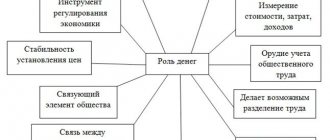To reveal the topic “Good and Evil” in essay 15.3, arguments from fiction and real-life examples are needed, only in this way can one achieve high results on the Unified State Exam in the Russian language. Discussions about moral issues have been going on for a very long time, so these issues are often raised in exam papers. The student’s task is to express his point of view as fully as possible, based on the literary experience of talented writers and the life stories of real people.
The confrontation between good and evil began from the beginning of humanity and continues to this day. The whole point of the question is that sometimes these concepts are too closely intertwined in a person and it becomes too difficult to determine which of them is the main one.
Arguments
- The same act can be good for someone and evil for someone.
- Kindness is a manifestation of inner strength.
- The world maintains a balance between good and evil.
- Goodness must be kept not only within oneself, but also shared with others.
- There is too much evil and cruelty in the modern world.
- In fairy tales, good always triumphs over evil.
- Evil originates in negative emotions.
- Good deeds are actions of honor and conscience.
- Kindness can manifest itself in different ways: in words, thoughts, actions, and sometimes in inaction.
- Fiction is full of examples of genuine kindness.
↑ What makes a person kind? How does a person learn kindness? J. Boyne "The Boy in the Striped Pajamas."
Compassion and kindness can and should be learned. The main character of J. Boyne's novel “The Boy in the Striped Pajamas,” Bruno, is a striking example that confirms my position. His dad, a German military officer, hires a tutor for the children, who should teach them to understand modern history, to understand what is right and what is wrong. But Bruno is completely uninterested in what the teacher says, he loves adventure and does not understand at all how some people differ from others. In search of friends, the boy goes to “explore” the territory near his home and stumbles upon a concentration camp, where he meets his peer, a Jewish boy, Shmuel. Bruno knows that he should not be friends with Shmuel, so he carefully hides his meetings. He brings food to the prisoner, plays with him and talks through the barbed wire. Neither propaganda nor his father can make him hate the camp prisoners. On the day of his departure, Bruno again goes to a new friend, he decides to help him find his father, puts on a striped robe and sneaks into the camp. The ending of this story is sad, the children are sent to the gas chamber, and only by the remains of their clothes Bruno’s parents understand what happened. This story teaches that empathy needs to be cultivated in oneself. Perhaps we need to learn to look at the world the way the main character does, then people will not repeat terrible mistakes.
Epithets for the word “good”
Great, absolute, embodied, valuable, moral, selfless, spiritual, perfect, eternal, true, present, universal, worldly, amazing, human, priceless, unique, main, angelic, immeasurable, limitless, inexhaustible, selfless, rare, extraordinary, genuine, extraordinary, universal, original, genuine, Christian, natural, simple, special, own, internal, pure, manifested, made, greatest, reciprocal, defeated, triumphant, rejected, preserved, unnecessary, manifested, intended.
↑ Unconditional kindness to people, pity and mercy, forgiveness. F.M. Dostoevsky "Idiot".
A kind person can be called one who thinks about others more than about himself, is always ready to help those in need, and also takes other people’s experiences to heart. The hero of the novel by F.M. can be called truly kind. Dostoevsky's "The Idiot" by Prince Lev Nikolaevich Myshkin. Prince Myshkin is a representative of a noble family, orphaned early, who spent 4 years abroad due to a nervous illness. He seems like a strange but interesting person to those around him. He amazes people with the depth of his thoughts, but at the same time shocks with his straightforwardness. However, everyone notes his openness and kindness. His kindness begins to appear soon after meeting the main characters. He finds himself in the midst of a family scandal: Ganya’s sister Ivolgina, in protest against his marriage, spits in his face. Prince Myshkin stands up for her, for which he receives a slap in the face from Ganya. Only instead of getting angry, he feels sorry for Ivolgin. Myshkin understands that Gana will be very ashamed of her behavior. Lev Nikolaevich also believes in the best in people, so he turns to Nastasya Filippovna, claiming that she is better than she tries to seem. The ability to compassion, like a magnet, attracts people around Myshkin. Nastasya Filippovna and, later, Aglaya fall in love with him. A distinctive feature of Myshkin is pity for people. He does not approve of their bad actions, but he always empathizes and understands their pain. Having fallen in love with Aglaya, he cannot marry her because he feels sorry for Nastasya Flipovna and cannot leave her. He even feels sorry for the robber Rogozhkin, who subsequently kills Nastasya. Lev Myshkin's compassion does not divide people into good and bad, worthy and unworthy. It is aimed at all humanity, it is unconditional.
Epithets for the word "evil"
Incarnate, universal, irreparable, inevitable, absolute, triumphant, worldly, original, unconditional, otherworldly, ancient, unknown, necessary, unknown, monstrous, chilling, existing, obvious, perfect, great, unstoppable, main, pure, invisible, conceived, senseless, present, unthinkable, continuous, earthly, true, real, future, genuine, frightening, obvious, old, endless, old, human, internal, universal, special, former, strong, original, incorrigible.
↑ About the kindness of the soul. F.M. Dostoevsky "Crime and Punishment"
In his famous novel, Fyodor Mikhailovich creates a vivid image of a man in whose heart there is no place for cruelty, whose soul is full of kindness towards his neighbor. The author believes that it is the compassion inherent in a kind soul that determines the humanity of each of us. Sonechka Marmeladova has to sell her body in order to feed the children of her stepmother, her drunkard father, so she shows compassion. Despite the fact that she has to worry, Sonechka retains the kindness of her soul and does not become bitter. And when the heroine meets Raskolnikov, we see how the girl shares his mental pain, shows kindness to the young man, which saves his soul. Speaking about Dostoevsky's novel, it is worth noting that almost every hero is tested by this great feeling of compassion for his neighbor. "Crime and Punishment" Briefly
Examples from fiction
- A.S. Pushkin "Mozart and Solieri".
The basis of the plot of the tragedy by A.S. Pushkin is a confrontation between two famous composers of the same time. And although Mozart occupied a leading position, the writer paid the main attention in the work to Salieri. Mozart was only needed to reveal the emotions of another character. An analogy can be drawn between the confrontation between composers and the struggle between good and evil, one hero symbolizes the light side, the other the embodiment of the dark.
Mozart was a man gifted with talent. He did not create music for the sake of fame and money, but did it because creativity was the meaning of his whole life. Salieri also lived by music and devoted his entire life to it, but for what was given to Mozart so easily, the less talented composer had to make great efforts. Salieri devoted himself entirely to the process of creation, devoting all his time to it and depriving himself of the many benefits of worldly life. This injustice drives him crazy; his competitor’s talent haunts him. Why did Mozart receive his gift, but he only got the opportunity to understand music? His mind, clouded by envy, leads Salieri to the idea that since he failed to become famous as a composer, he might become known as an evil genius who took the life of the most talented of people. Only in the death of his opponent does he see the only possible way out.
The tragedy in the work lies not only in the premature death of Mozart, but also in the fate of Salieri himself. He was not ready to admit that someone could be better and therefore decided to commit a crime.
- I. Goethe “Faust”.
In J. Goethe's drama, the embodiment of evil and good is the main character Faust himself, a scientist who dreams of knowing the Universe. The author presents the human soul as a battlefield between good and evil. God and Raphael argue about which side Faust will choose. God believes in the goodness hidden in the soul of even the most vicious person, and Raphael is the embodiment of evil itself. He tries in every way to seduce Faust in order to force the doctor to sell his soul. Neither drunkenness, nor money, nor love seduced the protagonist so much that he was ready to part with his soul. Raphael's deceit had the opposite effect; Faust was able to see the main guidelines in life and now his soul became inaccessible to evil. For the two opposing sides, he was just experimental material, and as a result, Raphael was defeated without achieving his goal. Faust managed to win this battle, but good and evil are immortal, which means their struggle will last forever and the problem of a person’s choice will remain open forever.
- M.A. Bulgakov "The Master and Margarita".
In the novel “The Master and Margarita” by M.A. Bulgakov showed the eternal confrontation between good and evil, and he did it in a unique way: he combined two completely different stories under one binding. The author described the events that took place in the 30s of the 20th century and the events of ancient times. The result is a kind of novel within a novel, united by a common idea - the search for good and the fight for it. Immediately we find ourselves in distant Yershalaim in the palace of the procurator Pontius Pilate, where the fate of a man named Yeshua, who encouraged the people to destroy the temple, is decided. According to Pontius Pilate, the whole world is structured this way: there are people with power, and the rest obey them. Therefore, the procurator is very surprised that there are those who have a different point of view, and Yeshua was not yet afraid to object to him. The fear of losing the respect of the right people overcomes the life principles of Pontius Pilate, and he executes an innocent man. After this, the procurator begins to be haunted by nightmares and tormented by his conscience, and from then on he did not know what peace was.
All the vices of the world surrounding Yeshua and the Master are exposed by Woland. Woland is the image of the devil rethought by the author. He came to Moscow with the goal of identifying all the dark sides of humanity and putting them on public display. As a result, he came to terms with the fact that people remain the same at all times. There is a lot of evil in their lives, but there are also those in whose hearts faith in God still lives. The Master's purpose was for him to reveal the truth revealed to him in his novel about Jesus Christ. But society was not ready for such a truth and the Master had to leave, leaving behind a student and his work, which reminded that people themselves will have to understand their problems, and the confrontation between good and evil will continue forever.
↑ A. Platonov “Yushka”
Another hero of Russian literature who has to endure the cruelty of others is the blacksmith’s assistant Efim Dmitrievich, popularly nicknamed Yushka. Very often, children and adults offend Yushka, beat him, throw stones, sand and earth at him, but he endures everything, does not take offense and is not angry with them. Sometimes the guys try to anger Yushka, but nothing works out for them, and sometimes they don’t even believe that he’s alive. The hero himself believes that those around him show “blind love” to him. Yushka does not spend the money he earns, he only drinks empty water. Every summer he goes somewhere, but no one knows where exactly, and Yushka does not admit it, he names different places. Every year Yushka becomes weaker from consumption. One summer, instead of leaving, he stays at home. And in the evening, returning from the forge, for the first time in his life, he responds to the cruel attacks of a passerby making fun of him. Efim Dmitrievich states that if he was born, it means he is needed on this earth for something. The offender, who did not expect a rebuff, pushes Yushka in the sore chest, he falls and dies. Particular attention in the story is paid to the hero's adopted daughter, to whom he went all these years, taking the money he earned to support her in the boarding house. Knowing about Yushka’s illness, the girl studied to be a doctor and wanted to cure him. No one told her that Yushka had died - he simply did not come to her, and the girl went to look for him. The heroine remains to work in the city, selflessly helps people, and everyone calls her “Yushka’s daughter”, that’s how good begets good. READ THE STORY “YUSHKA”
Examples from life
- The concepts of good and evil are extremely acute in war, where it is very difficult to do good deeds, since there is no room for pity and sympathy. Any show of kindness stood out sharply against the backdrop of war brutality. My great-grandfather was 19 years old at the start of the War. He immediately went to the front and ended up in a road construction battalion. Two years later he became a platoon commander and assistant to the headquarters of the road regiment. Together with the soldiers, my great-grandfather built roads and built bridges for transporting military equipment. The work was difficult, sometimes I had to stay awake for days, work day and night, in heat, rain and snow. The Germans, realizing the importance of having roads for transporting equipment, tried in every possible way to destroy the construction battalions. My great-grandfather had to endure a large number of shellings and attacks. One day, during a period of temporary calm, he and his fellow soldiers went out to a small lake to swim. While in the water, he noticed a curly head in the grass, not far from the shore. Having climbed onto land, the great-grandfather discovered a boy of about three years old hiding in the hazel thickets. It turned out that this was the son of a German officer, who was lost in the forest during their retreat. Some soldiers offered to use the child to obtain useful information as a ransom, others showed incredible cruelty by expressing their proposal to take him prisoner, but my great-grandfather made his own decision to keep the baby with him. War was war, and the child was not to blame for anything. It was truly an act of kindness in the face of evil. The German boy became the adopted son of my great-grandfather and my second grandfather. No one knows what his fate would have been like if not for this incident.
- Parents often make big mistakes when raising children. They only want the best for their child, but rash actions can harm the child. Friends of our family could not have children for a long time, no matter what they did. A lot of effort and money were spent on examinations and treatments, so when my mother’s friend finally managed to get pregnant, their joy knew no bounds. The long-awaited child became the meaning of the entire existence of his parents. They overprotected and cherished him. In early childhood, the boy was protected from communicating with other children, because they could offend him or infect him. When the time came to go to kindergarten, parents found a thousand excuses not to let their child leave them even one step. But a child cannot spend his whole life next to his mother’s skirt, and the moment came when the boy had to go to first grade. Now his parents had no choice. It was then that the first signs of the child’s inability to interact with society appeared. The boy simply did not know how to communicate with other children, or how to generally behave in society. Subsequently, his problems worsened, and the former misunderstanding turned into cruelty and bitterness towards the world around him. His parents only wanted the best for their child, but it turned out that with their own hands they caused irreparable harm. Using the example of this family, we can come to the conclusion that raising a child is a very responsible process that needs to be approached wisely, weighing the pros and cons.
↑ What makes a person cruel and evil? A.I. Solzhenitsyn "Matrenin's Dvor"
In A. I. Solzhenitsyn’s story “Matrenin’s Dvor” there is a hero whose cruelty simply amazes the reader. Thaddeus once loved Matryona very much, but he was drafted into the army, and during the war he was lost without a trace. During this time, the young man's family lost all hope of his return and took Matryona into the house as the wife of their youngest son. Although the girl loved Thaddeus, she could not argue, because times were difficult, and people needed a worker in the house. Returning Fadey could not understand what had happened, his cruelty knew no bounds, he blamed his ex-fiancée and brother for everything. Time passed, but the insult was not forgotten. Matryona was already unlucky: all the children died, and so did her husband. It was then that Fadey gave Matryona to raise Kira, and it was he who insisted that the heroine give up the upper room. Even at the funeral of the once beloved woman, Thaddeus does not forgive her for that marriage. The hero cynically divides the meager property of the deceased. His cruelty is amazing and finds no justification, because the heroine helped his family in difficult times, and this is the only reason for her betrayal.
Folk wisdom
- “To do good is to amuse yourself . Our wise ancestors believed that good deeds coming from a pure heart bring joy to a person. Therefore, the one who does good is in a good mood.
- “He who does good will be rewarded by God . This proverb says that all good deeds will be rewarded according to their deserts. There is no need to wait for a reward right away, when the time comes - God will help.
- “Whoever does good, evil will not harm him . This proverb says that a good person need not be afraid of evil. Evil is not capable of settling in the soul of someone whose thoughts are occupied with good deeds.
- “Good people will tell the truth and show the right path . This proverb encourages you to listen to kind people. Kind people have pure thoughts, they are honest and are able to give the necessary advice.
- “A kind word reaches the heart . Our ancestors have long noticed the powerful power of the word. A word can offend, injure, even kill. And a kind word can support in difficult times, give hope, and save the soul.
- “Good done in secret is rewarded openly . This folk wisdom says: truly good deeds are done selflessly, so people do not brag about them. If a person talks about his good deed on every corner, his good deed loses its value.
- “Goodness is not dashing: it wanders the world quietly . The meaning of this proverb is that not every person is able to notice the good in his life. Sometimes it is very close, you just need to take a closer look.
- "Anger deprives a person of strength . All negative emotions have a too debilitating effect on a person, and anger completely drains all the juices. Therefore, this proverb says that anger can deprive a person of all strength.
- “He who overcomes his anger becomes strong . Since ancient times, what has been most valued in a person is his ability to control his emotions. Anyone who is able to suppress the manifestation of anger in himself has a strong character.
- “Having done evil, do not hope for good . In life, everyone gets what they deserve. If a person has done evil to someone, this same evil will return to him over time. Goodness is present in the life of those who do good deeds themselves.
↑ What is the role of good in human life? N.G. Chernyshevsky “What to do?”
By doing a good deed for others, even while infringing on one’s own rights and opportunities, a person becomes happy because those close to him are happy. The characters test this theory with their lives. When Lopukhov saw that Verochka Rozalskaya needed to be saved from her own mother, who intends to marry her to the rich and immoral Storeshnikov, he decides to marry her, although this requires him to quit his studies and look for work. He completely disinterestedly passes on the data of his scientific research to his friend Kirsanov, making it easier for him to get his diploma. Vera Pavlovna starts workshops for poor girls, saving them from poverty and consumption, and divides the profits equally. In case of marriage, he gives a substantial dowry for the girl. When Vera Pavlovna fell in love with Kirsanov, she informs her husband about this, trusting him infinitely, and he stages his own suicide, freeing Vera from marriage. As a result, this universal dedication leads to universal happiness: Lopukhov, having gotten rich honestly somewhere in America, finds love and mutual understanding with Vera Pavlovna’s friend Katya Polozova.
Aphorisms
- “The fabric of our life is woven from tangled threads, good and evil coexist in it . Honore de Balzac compares life to a piece of fabric woven from two threads: one thread is good, the second is evil. In any matter, the threads are very closely intertwined, and so in life: good and evil always border each other.
- “Kindness is something that the deaf can hear and the blind can see . American writer Mark Twain gives his own definition of kindness: it is something that every person in the world can feel. Even those who have not encountered kindness will recognize it immediately.
- “Good is the eternal, highest goal of our life. No matter how we understand good, our life is nothing more than the desire for good . Lev Nikolaevich Tolstoy considered goodness to be the main goal of human life. All life, in his opinion, consisted of striving for absolute good.
- “We are kind to others in order to please ourselves more . French writer George Sand did not believe in human kindness, so she believed that people do good deeds only to exalt themselves in their own eyes.
- “I know of no other signs of superiority than kindness . Ludwig van Beethoven considered kindness to be the highest human virtue. A good man, in his opinion, was superior to all other people.
- “My love is so crazy that I don’t notice the evil in you . William Shakespeare wanted to say that love is blind. When you love a person deeply, you don’t pay attention to his shortcomings.
- "Man is evil by nature" . The founder of German philosophy, Immanuel Kant, spent his entire life trying to uncover the problem of human essence. He came to the conclusion that man is the most cruel and evil creature in our nature. Only people who hunt can kill for their own pleasure, and not out of hunger.
- “All bad deeds are born of good intentions . The great Roman emperor Gaius Julius Caesar said that often a person wants to do a good deed, but due to inexperience or ignorance he cannot. And then each event leads to the next. So it turns out that initially good intentions ultimately lead to bad deeds.
- “Bad examples are undoubtedly more powerful than good rules . The English philosopher John Locke was also a teacher, so he knew firsthand that in order to cultivate kindness in a child, personal example is most important. You can create as many rules as you like, but if the parents themselves don’t follow them, then neither will the child.
- “Only those who do good live . Lev Nikolaevich Tolstoy thought a lot about the meaning of life and came to the conclusion that it lies in kindness. People who do good truly live, others simply exist.
↑ Kindness as a property of the human personality. M. Zusak “The Book Thief”
In the center of the story of the novel “The Book Thief” by Markus Zusak, Liesel is a nine-year-old girl who finds herself in a foster family on the threshold of war. The girl’s own father was associated with the communists, so in order to save her daughter from the Nazis, her mother gives her to strangers to raise. Liesel begins a new life away from her family, she has a conflict with her peers, she finds new friends, learns to read and write. Her life is filled with ordinary childhood worries, but war comes and with it fear, pain and disappointment. She doesn't understand why some people kill others. Liesel's adoptive father teaches her kindness and compassion, even though it only brings him trouble. Together with her parents, she hides the Jew in the basement, takes care of him, reads books to him. To help people, she and her friend Rudi scatter bread on the road along which a column of prisoners must pass. She is sure that the war is monstrous and incomprehensible: people burn books, die in battles, arrests of those who disagree with official policy are taking place everywhere. Liesel does not understand why people refuse to live and be happy. It is no coincidence that the book is narrated from the perspective of Death, the eternal companion of war and the enemy of life.







